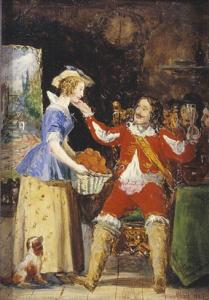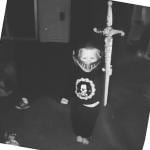Thus hath the Lord GOD shewed unto me: and behold a basket of summer fruit. 2And he said, Amos, what seest thou? And I said, A basket of summer fruit.
This is a person God can use and a most promising student. When confronted with a basket of summer fruit by the Lord GOD, Amos reported what he saw. He did not try to guess what God was asking, but listened to the question. Amos’ answer is perfect, because he told the truth without a bit of pretense.
Too often when I come to a text or face a serious question, I think ahead and answer the next question, the less obvious one. Given my inability to foretell the future, this often goes awry. More importantly, a failure to answer the question asked is rude, refusing to allow my interlocutor to address things in the manner or order he has chosen. This rudeness is coupled with foolishness when I immediately spiritualize or philosophize about the question and so miss the obvious meaning.
Sometimes speaking a plain truth is vital: God is showing the prophet a basket of summer fruit. When Amos reports that he sees what is there, he is showing himself to have good vision and clear thinking! If I had faced such a question, I would have been tempted to answer: “The nation of Israel. . .” showing that my education had gotten in the way of my vision. Before a student can consider what an object might mean, he has to see what the object is as it is.
Why is this hard? School habituates to cleverness. Selfishness hurries us to what we wish to see. Being clever is not bad as a means to wisdom, but the desire to be clever can get in the way of plain truths. Selfishness might have too little interest in what is as opposed to what we want reality to be. A more subtle error comes from a desire to be charitable to someone else: we see what ought to be instead of what is. First, no grownup should be “fixed” without their consent. Second, even if asked to help, we must begin with a clear vision of what is. We must not be blinded, hasty, or confused with charity.
All good relationships begin with seeing what someone is. Love begins in reality and only then, with consent, can aspire to relationship.
When I see Hope, I might see some of her roles, being wife, mother, teacher, Christian, but first I have to see her as she is: Hope as Hope. Otherwise, I might hasten past Hope herself to what I wish her to be or (worse!) dream of Hope as I “need” her to be. Instead, I must see a human as a human, acknowledge what is before me, and only after acknowledging reality, listen and consider what comes next in our relationship. When she asks me what I see, I should begin (at least in my heart) with “Hope.”
I am thankful for Amos who was questioned by God and said what he saw. As a result, God showed Amos deeper things. May we say what we see and then listen to the books, people, and God for more.













